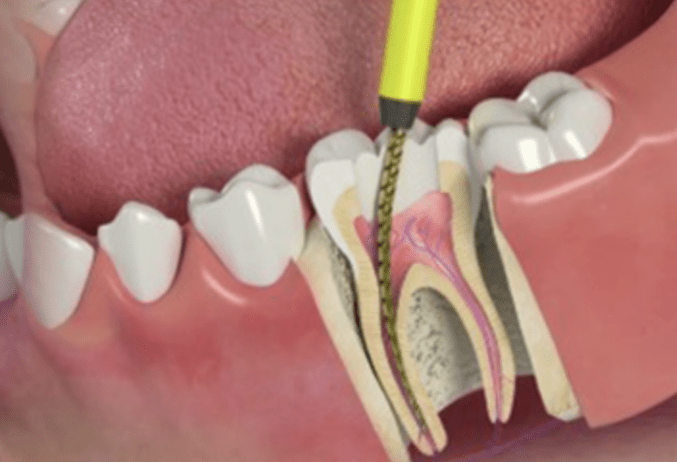
A tooth abscess is a painful dental condition that requires immediate attention to maintain good oral health. This infection can cause severe pain, swelling, and potentially lead to serious complications if left untreated. Understanding why prompt treatment is crucial can help prevent complications and ensure your overall well-being.
What is a Tooth Abscess?
A tooth abscess is a pocket of pus that forms at the tip of a tooth’s root or in the gums due to a bacterial infection. This infection usually arises from untreated dental cavities, gum disease, or an injury to the tooth. The abscess can cause intense pain and discomfort, affecting your ability to eat, speak, and perform daily activities.
Signs and Symptoms
Recognizing the signs of a tooth abscess is essential for seeking timely treatment. Common symptoms include:
- Severe, throbbing pain: Pain often starts suddenly and can be constant or intermittent. It may radiate to the jaw, ear, or neck.
- Swelling: The area around the infected tooth may become swollen and tender. This swelling can extend to the face or neck.
- Redness and warmth: The affected area may feel warm and appear red due to inflammation.
- Fever: A tooth abscess can cause a high fever as the body tries to fight off the infection.
- Bad breath: The presence of pus can lead to foul-smelling breath.
- Difficulty swallowing: Swelling and pain may make swallowing difficult.
- Swollen lymph nodes: Lymph nodes in the neck or jaw may become swollen as they attempt to filter out the infection.
Why Timely Treatment is Crucial
- Preventing Spread of Infection
If left untreated, a tooth abscess can lead to the spread of infection to other parts of the body. The bacteria from the abscess can enter the bloodstream, causing serious health conditions like sepsis, a potentially life-threatening infection. By seeking prompt treatment, you can prevent the infection from spreading and avoid severe complications.
- Avoiding Tooth Loss
An untreated tooth abscess can destroy the surrounding bone and tissue, potentially leading to tooth loss. Early intervention can often save the affected tooth by addressing the underlying infection and preventing further damage. Treatments like root canal therapy can preserve the tooth and restore its function.
- Reducing Pain and Discomfort
Tooth abscesses can cause excruciating pain that impacts your quality of life. Immediate treatment helps relieve pain and discomfort, allowing you to return to your normal routine. Your dentist can provide pain relief and address the infection effectively, alleviating your symptoms and improving your overall well-being.
- Preventing Further Complications
An untreated abscess can lead to additional health problems, such as:
- Cellulitis: This is a bacterial skin infection that can occur if the abscess bursts and the infection spreads to the surrounding tissue.
- Osteomyelitis: This is an infection of the bone that can occur if the abscess affects the jawbone.
- Sinus infections: In severe cases, the infection can spread to the sinus cavities, causing sinusitis.
Timely treatment minimizes the risk of these complications and promotes overall health.
- Improving Oral Health
Regular dental care and prompt treatment of abscesses are crucial for maintaining good oral health. Untreated abscesses can lead to gum disease, which can cause further tooth and bone loss. By addressing an abscess promptly, you can prevent these issues and maintain a healthy mouth.
Treatment Options
- Antibiotics
Antibiotics are commonly prescribed to control the bacterial infection associated with a tooth abscess. They help reduce swelling and pain and prevent the infection from spreading. However, antibiotics alone are not a permanent solution and should be combined with other treatments to address the root cause.
- Drainage
In many cases, your dentist will need to drain the abscess to remove the pus and relieve pressure. This procedure typically involves making a small incision in the gum or tooth to allow the pus to escape. Drainage can provide immediate relief from pain and pressure.
- Root Canal Therapy
Root canal therapy is often recommended to treat the underlying cause of the abscess. During this procedure, the dentist removes the infected pulp from inside the tooth, cleans the root canals, and seals them to prevent further infection. A crown may be placed on the tooth to restore its function and protect it from future problems.
- Tooth Extraction
In some cases, if the tooth is severely damaged and cannot be saved, extraction may be necessary. The dentist will remove the affected tooth and discuss options for replacing it, such as dental implants or bridges.
Preventing Tooth Abscesses
Preventing tooth abscesses involves maintaining good oral hygiene and seeking regular dental care. Here are some tips to help avoid abscesses:
- Brush and floss regularly: Brush your teeth twice a day and floss daily to remove plaque and prevent cavities and gum disease.
- Visit your dentist regularly: Schedule regular check-ups and cleanings to detect and address dental issues early.
- Address dental issues promptly: Seek treatment for cavities, gum disease, or any signs of infection to prevent complications.
- Avoid smoking: Smoking can increase your risk of gum disease and oral infections.
Conclusion
Tooth abscess treatment is essential for maintaining oral health and overall well-being. Prompt and effective treatment can prevent the spread of infection, avoid tooth loss, reduce pain, and prevent further complications. By understanding the importance of addressing a tooth abscess and seeking timely care, you can ensure a healthier mouth and a better quality of life. If you suspect you have a tooth abscess, contact your dentist immediately to discuss the best treatment options and protect your oral health.